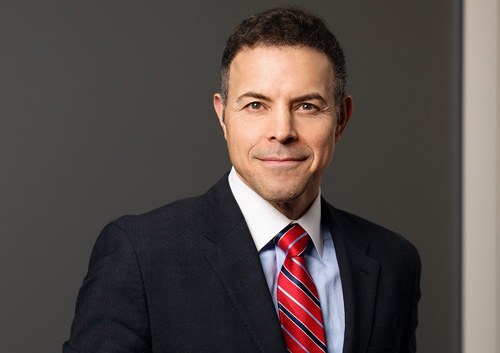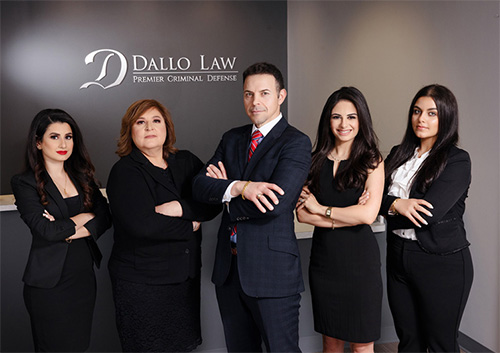Michigan law classifies criminal sexual conduct according to four different “degrees.” Each degree is distinct. Charges for either fourth- or second-degree criminal sexual conduct require the defendant to have had “sexual contact” with another person. Charges for either first- and third-degree criminal sexual conduct require the defendant to have engaged in “sexual penetration.” A sex crime conviction for any of the four degrees can lead to severe legal consequences.
A qualified criminal defense attorney can provide accused persons with a further understanding of the different charges and repercussions as pertain to their unique circumstances.
Michigan Criminal Sexual Conduct Attorney
If you have been arrested for criminal sexual conduct in Michigan, your freedom is at stake. Being convicted of a sex crime can have dire consequences so it is imperative that you do not tackle this legal challenge alone. Instead, reach out to Dallo Law, P.C..
Attorney J. Dallo at Dallo Law, P.C. will work hard to obtain the best possible outcome for your case. Set up your first consultation free with Mr. Dallo by calling (248) 283-7000.
Dallo Law, P.C. accepts clients throughout the greater Oakland County and Macomb County, Michigan area.
Information Center
- Degrees of Criminal Sexual Conduct in Michigan
- Penalties For Criminal Sexual Conduct
- Registration For Michigan Sex Offender Registry
- Defenses To Michigan Criminal Sexual Conduct Charges
- Additional Resources
Degrees of Criminal Sexual Conduct in Michigan
First-degree criminal sexual conduct and third-degree criminal sexual conduct occur when a defendant engages in sexual penetration. Both statutes consider various circumstances under which penetration may have occurred. Scenarios that are specifically cited by law include:
- Foster family environments or childcare organizations
- When force or coercion is used, resulting in injury
- When the defendant is a school employee or contractor
- When the defendant is in an authoritative position over the alleged victim
- The alleged victim is mentally unable to consent to sexual activity
Second-degree criminal sexual conduct and fourth-degree criminal sexual conduct occur when a defendant engages in sexual contact with another person. Each statute considers various circumstances that may have influenced the situation in question. Scenarios specifically cited by law include:
- Familial relationships between the defendant and alleged victim;
- The defendant and alleged victim live in the same home;
- Where the defendant is in an authoritative position over the alleged victim, such as a school teacher or other school affiliate;
- Coercion or force used to accomplish sexual contact;
- The alleged victim is unable to consent to sexual contact;
- The defendant is an employee or affiliate of the Department of Corrections (DOC), and the alleged victim is under DOC jurisdiction;
- When the defendant is a mental health professional and the alleged victim is a current or former patient; and
- When the defendant is a licensed foster care provider or involved with a child care organization.
Penalties For Criminal Sexual Conduct
Fourth-degree: Charged as a misdemeanor, penalties include either or both of the following:
- Up to two years in prison; and/or
- A fine of up to $500.
Third-degree: A felony conviction may result in a maximum of 15 years in prison.
Second-degree: A felony conviction may result in both of the following:
- Maximum of 15 years in prison; and
- Lifetime electronic monitoring (if the defendant was 17 years or older and the victim was less than 13 years old).
First-degree: Penalties for a first-degree felony vary significantly based on the circumstances of the case, particularly the ages of the defendant and the victim:
- The defendant is at least 17 years old, and the victim is under age 13: minimum of 25 years in prison and a maximum of a life sentence
- The defendant is at least 18 years old, and the victim is under age 13: up to life in prison without parole (applies only to defendants with prior criminal sexual contact convictions)
For other cases, usually those not reliant upon age, defendants can still serve life in prison. Some criminal defendants are also subject to a lifetime of electronic monitoring upon release from prison.
Registration For Michigan Sex Offender Registry
In addition to any fines or time served in prison, certain offenders are required to register as sex offenders under the state’s Sex Offenders Registration Act. As maintained by the Michigan State Police, the registry tracks information related to individuals convicted of sex offenses, much of which is then made available to the public. Upon release, an offender’s crime is ranked as a Tier I, Tier II, or Tier III offense. The tier determines how long the offender’s information will remain publicly available.
Tier I includes
- Third- or fourth-degree criminal sexual conduct, where the victim is aged 18 or older;
- Fifteen years on the registry.
Tier II includes
- Second- or fourth-degree criminal sexual conduct;
- Twenty-five years on the registry.
Tier III includes:
- First-degree criminal sexual conduct;
- Second-degree criminal sexual conduct, where the victim is under age 13;
- Third-degree criminal sexual conduct;
- Fourth-degree criminal sexual conduct, where the offender is over age 17 and the victim is under age 13;
- All tier III offenses require a lifetime registration.
Regardless of the tier, a registration requirement can result in severe social and personal consequences, including difficulty securing housing, stable employment, and educational degrees.
Defenses To Michigan Criminal Sexual Conduct Charges
There are several defenses to criminal sexual conduct charges that may be presented in response to the prosecution’s efforts. A skilled criminal defense attorney can help a defendant determine the best strategic defenses for their unique case.
Consent: Consent to sexual contact can be a defense under limited circumstances. Consent is not generally a valid defense if the alleged victim is under 16 years old. The alleged victim’s age of consent increases to 18 if the defendant maintains an authoritative position over the victim, such as a teacher in a school.
Mental Incapacity: This defense is used when a defendant can show that they had a mental disease or defect when the sexual contact is alleged to have occurred. This defense often works in conjunction with the consent defense, as a defendant without mental capacity is less likely to understand the meaning or purpose of consent.
Insanity: While used in rare circumstances, the insanity defense is used after a qualified mental health professional has evaluated a defendant. Both the prosecution and defense will have experts testify regarding the defendant’s medical and mental health records.
There are additional defenses for criminal sexual conduct charges, such as alibi and various constitutional defenses.
Additional Resources
Model Criminal Jury Instructions: Chapter 20 | Michigan Supreme Court — Juries hear criminal jury instructions for Criminal Sexual Conduct charges before determining whether an individual defendant should be held accountable for a specific crime.
Sex Offender Registry | Michigan State Police — The Michigan State Police website for registration provides answers to frequently asked questions for both individuals who need to register and members of the public.
Bloomfield Hills Criminal Sexual Conduct Lawyer | Oakland County, MI
If you are facing charges for criminal sexual conduct, reach out to an experienced criminal defense attorney in Michigan. At Dallo Law, P.C., attorney J. Dallo understands how difficult and stressful sex crime accusations can be. He will tackle your case aggressively but with discretion and sensitivity.
Call us now at (248) 283-7000 to set up your first consultation for free. Dallo Law, P.C. accepts clients throughout the Oakland County and Macomb County area including Bloomfield Hills, Sterling Heights, Roseville, Pontiac, Troy, Royal Oak, Birmingham, Utica, Rochester, Novi and St. Claire Shores.









